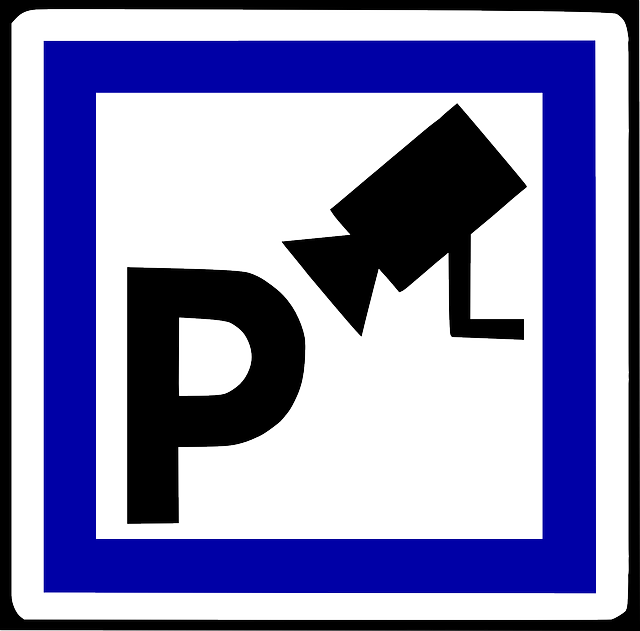Local liability insurance is a critical shield for businesses, protecting against claims related to bodily injury or property damage and fostering stability in their community. When choosing a provider, align coverage with unique business needs, prioritize financial stability, and seek established firms for reliable service. Top national providers specialize in diverse sectors, offering tailored policies with excellent claims handling. Local small business insurers provide niche knowledge, while agents offer personalized advice based on local markets. A thorough cost analysis, understanding claim processes, and awareness of policy exclusions are key to making informed decisions in a competitive market, ensuring comprehensive protection at a reasonable cost.
Local liability insurance is an often-overlooked yet essential component for businesses navigating their community. This article guides you through understanding, choosing, and optimizing your local liability coverage. We explore key factors like provider reputation, niche insurers for small business needs, and the role of local agents in personalized service. Additionally, we analyze cost, claim handling, perks offered by top providers, and how to avoid policy pitfalls, empowering you to make informed decisions regarding this vital protection.
Understanding Local Liability Insurance: Protecting Your Business in Your Community

Local liability insurance is an essential shield for businesses operating within a specific community. It protects against claims of bodily injury or property damage that may arise from your day-to-day operations. This type of coverage is crucial as it helps business owners manage potential risks and legal expenses, ensuring they can maintain stability and focus on growth in their local area.
By insuring against liability, businesses contribute to the overall well-being of their community. If a claim occurs, the insurance provider steps in to cover settlement costs, offering peace of mind to the policyholder. This not only ensures the financial security of the business but also allows them to continue serving the local market without interruption.
Key Factors to Consider When Choosing a Liability Insurance Provider

When selecting a liability insurance provider, several critical factors come into play. First and foremost, understanding your specific business needs is essential. Different industries face unique risks; therefore, choosing an insurer who specialises in your sector can offer tailored coverage. This expertise ensures that your policy aligns with legal requirements and industry-specific hazards.
Additionally, the financial stability of the insurance provider is a key consideration. Checking their ratings and reviews will provide insight into their reliability and ability to honour claims. Opting for a well-established company with a solid track record instils confidence in the event of needing to make a claim. Look for companies with a proven history of effective customer service, ensuring prompt and efficient support when required.
Top National Providers and Their Local Focus

In the competitive landscape of liability insurance, several national providers stand out for their comprehensive coverage and local focus. These top players offer a wide range of options tailored to meet diverse business needs, from small startups to large corporations. They invest heavily in understanding the unique risks faced by different regions, ensuring policies that are both robust and relevant.
Companies like [Provider A], [Provider B], and [Provider C] have established significant market share through their dedication to local communities. [Provider A] is known for its deep penetration in rural areas, providing specialized coverage for agricultural businesses. [Provider B] focuses on urban centers, addressing the complex liability issues faced by dense populations and diverse industries. Meanwhile, [Provider C] has carved a niche for itself in the mid-size cities, offering flexible policies that cater to the specific needs of growing enterprises. Their local presence and expertise enable them to deliver personalized service, rapid claims handling, and tailored risk management advice, solidifying their positions as go-to providers for liability insurance across the nation.
Specializing in Small Business: Niche Insurers for Tailored Coverage

Many local liability insurance providers specialize in catering to small businesses, offering tailored coverage that meets their unique needs. These niche insurers understand the specific risks and challenges faced by smaller operations and design policies to mitigate those concerns effectively. By focusing on this segment, they can provide more personalized service and a deeper understanding of the legal and financial complexities involved.
Niche insurers often offer specialized liability insurance packages tailored for retail stores, restaurants, or service-based businesses. These policies may include specific coverage for property damage, personal injury, professional liability, and even employment practices. This targeted approach ensures that small business owners receive comprehensive protection aligned with their industry-specific risks, making it easier to manage potential liabilities and run a successful operation.
The Role of Local Agents: Facilitating Personalized Service

Local agents play a pivotal role in facilitating personalized service for liability insurance providers. They serve as the bridge between insurers and their customers, understanding unique business needs and translating them into tailored coverage solutions. By working closely with both parties, agents can offer expert guidance, ensuring clients receive comprehensive protection that aligns with their specific risks and liabilities.
These agents possess in-depth knowledge of the local market, regulatory environment, and industry trends, enabling them to identify potential gaps in coverage. They engage in open dialogues with policyholders, gathering essential details about their operations to recommend suitable liability insurance policies. This personalized approach not only enhances customer satisfaction but also fosters long-term relationships built on trust and reliability.
Cost Analysis: Comparing Premiums, Deductibles, and Coverage Limits

When evaluating local liability insurance providers, a thorough cost analysis is paramount. Start by comparing premiums, which can vary significantly between insurers. Lower premiums don’t always mean better value; consider also deductibles and coverage limits. A deductible is the amount you pay out-of-pocket before insurance kicks in, while coverage limits cap the amount your insurer will cover in case of a claim. Higher deductibles and lower limits may reduce premium costs but could lead to greater financial exposure if claims exceed these thresholds.
Look beyond initial quotes; scrutinize the fine print. Different policies offer varying levels of protection for different scenarios. Ensure the liability insurance adequately covers potential risks specific to your business operations. This involves assessing the type and extent of liability you face daily, from property damage to personal injuries. By thoroughly analyzing premiums, deductibles, and coverage limits, you can make an informed decision, balancing cost-effectiveness with sufficient risk mitigation.
Claim Handling and Customer Support: Ensuring Peace of Mind

When it comes to liability insurance, smooth and efficient claim handling is paramount. Customers rely on their insurance providers to guide them through potentially stressful situations, ensuring that claims are resolved fairly and promptly. A reputable local liability insurance provider prioritises customer support, offering 24/7 accessibility for policyholders. This means dedicated representatives are available to answer questions, provide clarification, and assist with filing claims at any hour of the day or night.
Effective communication is key during this process. The best providers offer multiple claim reporting options, including online portals, phone lines, and even mobile apps, making it convenient for policyholders to initiate and track their claims. Regular updates on claim progress further instill peace of mind, demonstrating that the insurance company is dedicated to serving its customers’ interests and ensuring they receive the support they need during challenging times.
Additional Services and Perks Offered by Leading Providers

Many leading Liability Insurance providers offer more than just core coverage. They understand that businesses need comprehensive protection and added peace of mind in today’s complex legal landscape. As such, they often provide a suite of additional services and perks to enhance their policies. These might include access to legal advice hotlines, where business owners can get guidance on liability issues and best practices for risk mitigation. Some providers also offer mediation and arbitration services, helping to resolve claims efficiently and cost-effectively.
Beyond these, leading insurers may provide resources for business continuity planning, loss prevention consulting, and even cyber liability coverage as standard or optional add-ons. They may also offer discounts for bundled policies, multiple locations, or long-term partnerships, making it more affordable for businesses to secure comprehensive Liability Insurance that meets their unique needs.
Navigating Policy Exclusions and Common Pitfalls

Navigating policy exclusions is a critical aspect of understanding your liability insurance coverage. While most policies aim to protect against various risks, there are often specific circumstances and activities excluded from coverage. These exclusions can catch business owners unaware, leaving them vulnerable to significant financial losses. Common pitfalls include activities like willful misconduct, intentional acts, or certain types of ongoing business operations that pose inherent risks.
When reviewing your liability insurance policy, pay close attention to the terms and conditions related to these exclusions. Some policies may also have limitations on the type of businesses covered, geographical areas, or specific events. Being aware of these potential gaps in coverage can help you make informed decisions when choosing an insurance provider.
